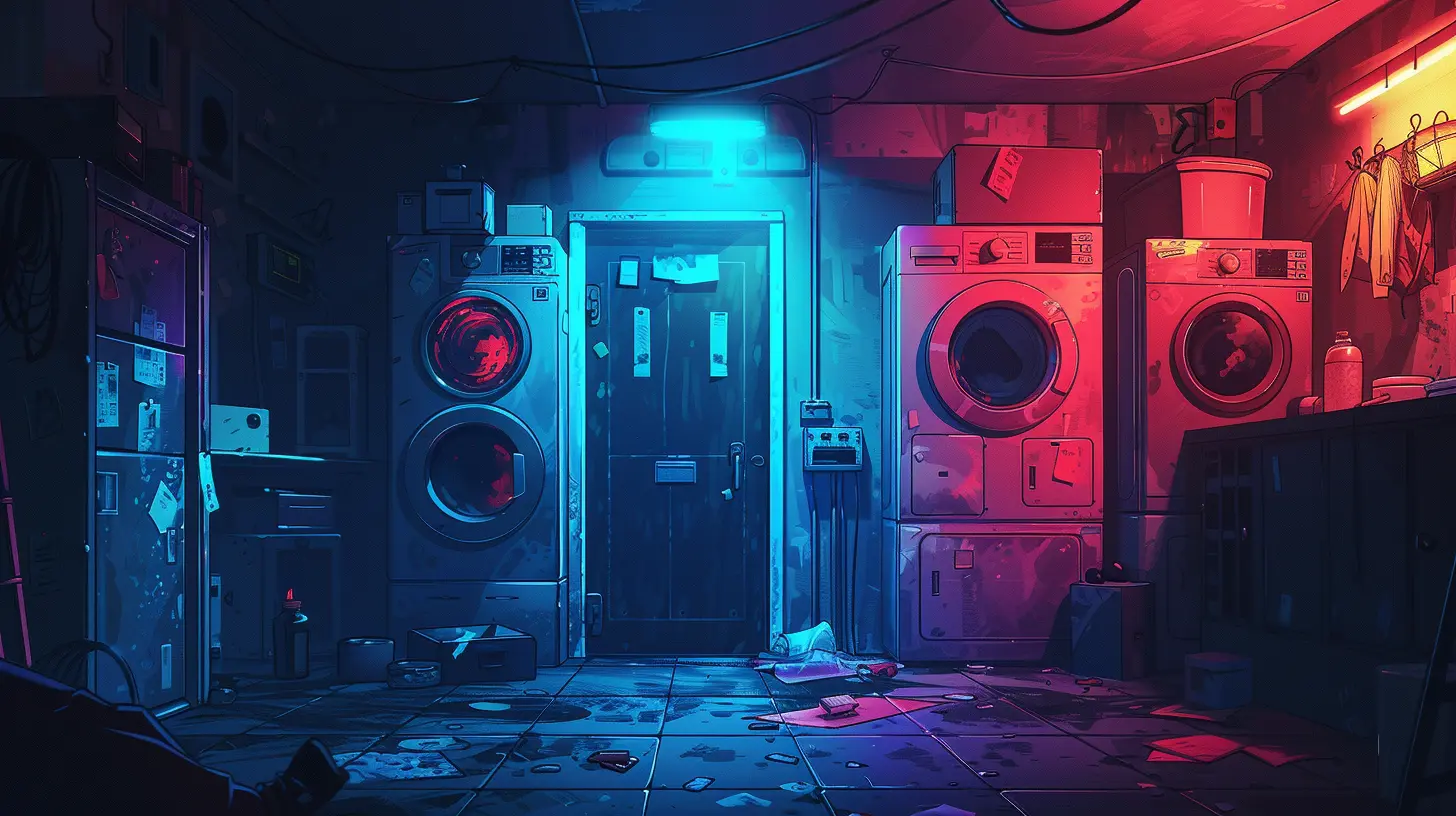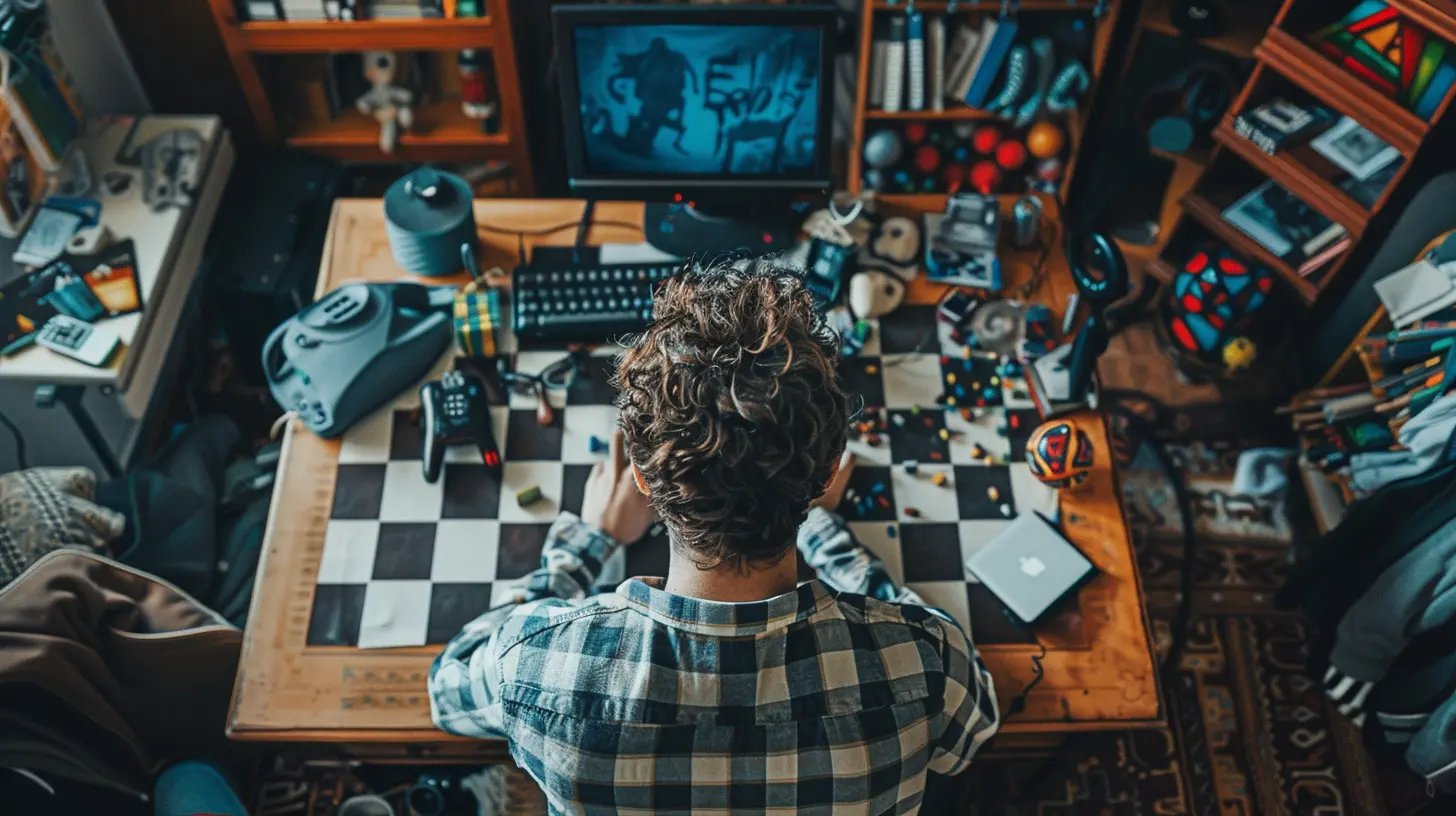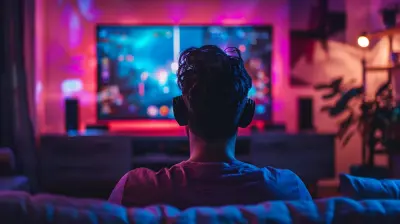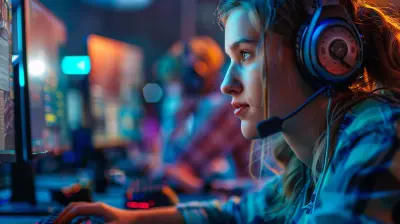How to Avoid Distractions and Focus in Addictive Casual Games
22 August 2025
Let’s be real for a second. Casual games are fun — like, dangerously fun. Whether it’s Candy Crush, Clash of Clans, or any of those quick-hit mobile games that seem designed to suck away our spare minutes (or hours), they’ve got one thing in common: They’re crazy addictive. One more level. Just one more task. You’ll stop after this stage, right?
Yeah, we’ve all been there. You pick up your phone "just for a few minutes," and suddenly it’s dark outside, your coffee’s cold, and you forgot to send that super-important email. Oops.
But don’t worry — if you’ve caught yourself spiraling into the endless loops of casual gaming, you’re not alone. And there’s something you can do about it. In this post, we’ll chat about why casual games are so addictive, how distractions creep in, and most importantly — how to stay focused without losing all the fun.
Why Casual Games Are So Addictive (And It’s Not Your Fault)
First things first — you’re not weak or lazy. Casual games are literally engineered to hijack our brains. It's psychology meets game design, and it's working perfectly (for them, not for us).The Dopamine Hit
Every time you win a level, collect shiny loot, or unlock a reward, your brain drops a sweet little hit of dopamine — the feel-good chemical. It’s like your brain giving you a high-five.But here's the kicker: your brain starts craving that jolt, again and again. That need to feel good keeps you tapping, swiping, and forgetting that you had a pile of laundry waiting.
The Illusion of Progress
Ever noticed how early levels are super easy? That’s by design. You feel awesome breezing through, and you think, “Hey, I’m really good at this!” But then the game slowly ramps up difficulty, and before you know it, you’re grinding just to beat Level 57.It’s the trick of progression. The game gives you the illusion of achievement — tiny goals that feel meaningful, even if they’re not actually helping your real life.
FOMO and Social Pressure
Many games throw in social features — think leaderboards, friend invites, guilds. Suddenly, it’s not just about you. You’re part of a team. You don’t want to let your squad down. Or maybe you just want to beat Dave from accounting.That fear of missing out (FOMO) keeps you coming back. It’s not just a game anymore — it’s a social arena.
Recognizing When Distraction Takes Over
Alright, now that we get why casual games are so hard to put down, how do you know when it’s becoming a real issue?The Signs You’re Being Distracted
Let’s look at a few common red flags:- You tell yourself “just five more minutes”... and it's been an hour.
- You play games during work calls (not judging, just saying).
- You feel guilty after a long gaming session.
- You find it hard to focus on other tasks because you keep thinking about the game.
If any of these sound familiar, it doesn’t mean you have a full-blown addiction. But it’s probably time to set some boundaries.
How to Avoid Distractions and Focus in Addictive Casual Games
We’re not here to tell you to throw your phone out the window or delete every game. The goal isn’t to stop playing — it’s to play mindfully and with control. Let’s dive into some practical, easy-to-do strategies to get your game-life balance back on track.1. Set a Timer — Seriously, Use One
This simple trick works wonders. Decide how long you want to play (say, 15 or 20 minutes), then set a timer on your phone or smart speaker.When the timer goes off — stop. No, really. Just stop. The time limit helps your brain make peace with the idea of stopping. Think of it as a "gaming budget" for your attention.
⏰ Pro tip: Use a visible clock or countdown timer app. Watching the time tick down keeps you aware.
2. Designate “Game Time” Like It’s a Coffee Break
Instead of random, all-day-am-I-playing-or-not playing, carve out a specific time in your day that’s your "game time." Treat it like a break. A reward. A moment to relax between tasks.Game time becomes intentional, not impulsive.
🎯 It could be:
- After lunch break
- Post-work relaxation
- 15 minutes before dinner
This gives your brain something to look forward to, without letting the games hijack your entire to-do list.
3. Turn Off Notifications (They’re Evil)
Okay, maybe not evil… but notifications are sneaky little distractions.You’re writing a report or folding laundry, and buzz buzz — “Your base is under attack!” or “You’ve got free energy waiting!” What happens next? You drop everything.
Turn off non-essential gaming notifications. You won’t miss much. Those reminders are just lures to pull you back in.
🔕 Go to your phone settings and mute game alerts. Trust me, your focus will thank you.
4. Move Those Apps Off Your Home Screen
Out of sight, out of mind.If that game icon is staring at you every time you unlock your phone, it's way more tempting. Tuck those games into a folder or move them to a second screen. Better yet — log out when you’re done.
It’s like hiding the cookie jar on the top shelf. If it takes effort to get to it, you’re less likely to grab it without thinking.
5. Use Games as a Reward, Not a Default
Let’s flip the script. Instead of playing the game because you’re bored or avoiding work, use it as a celebration.Finished your email? Knocked out a task? Great — go crush a couple of levels as a treat. It turns gaming into positive reinforcement instead of mindless distraction.
🎉 You earned it, champ.
6. Keep a “Distraction Journal”
Sounds nerdy, right? But hear me out.Every time you catch yourself going to play a game out of habit, jot down what was happening. Were you stressed? Bored? Procrastinating?
Over time, you’ll start to notice patterns. Maybe you always open a game when you get stuck on work. Or when you feel anxious.
Once you know your trigger, you can tackle the root cause — not just patch it with playtime.
7. Find Other Quick Wins
Casual games hook us with fast rewards. So how about replacing that hit with something just as satisfying?Try:
- A 5-minute walk
- A short guided meditation
- Watching a funny video
- Doodling or journaling
You don’t need to give up that boost — just swap it for something healthier (and maybe more productive).
8. Consider Game-Free Zones
Designate certain places where games are off-limits. Like your bed, your desk, or the dinner table.Associating those spaces with focus, rest, or social time helps reinforce healthy habits. Plus, it breaks the automatic reflex of reaching for your phone.
🛑 Draw boundaries. Let certain areas be strictly game-free.
9. Choose Games With an Endpoint
Some games are designed to never end (hello, endless runners and clickers), so you’re always chasing the next goal.Instead, try choosing games that have clear, finite levels or matches. Games where you can legitimately say, “Okay, that round’s done.”
🎮 Puzzle games, card matches, or short missions can be easier to manage in moderation.
10. Reflect on Why You Play (It Matters)
Finally, ask yourself this: Why do you play casual games?- Is it to relax?
- Avoid boredom?
- Escape stress?
- Compete with others?
When you understand your “why,” you gain more power over your choices. If you’re seeking relaxation, maybe a nature walk or a hot bath could work too. If it’s competition, maybe try sports or board games with friends?
Your time and energy are precious. Spend them on experiences that truly recharge you.
Finding Balance: Gaming Without the Guilt
Let’s be clear — casual games aren’t evil. They’re meant to be fun. They’re your quick escape, your brain vacation. And that’s OK! You don’t have to quit gaming cold turkey to have a healthy relationship with it.Balance is the name of the game. With just a handful of tools — timers, boundaries, mindful play — you can enjoy your games without letting them steal your focus.
You’re in control. You choose when to play, how long, and why. You’re not a passenger in this ride — you’re the driver.
So go ahead, play that game. But do it on your terms. Game smart, stay sharp, and never forget: your attention is your superpower.
Final Thoughts
Avoiding distractions and focusing during addictive casual games doesn’t mean giving up what you love. It's about turning down the noise, setting reasonable limits, and getting back in the driver’s seat of your own time.You’ve got the tools now. Try them out. Adjust what doesn’t work. And feel free to make it fun — because if it’s not enjoyable, you won’t stick with it.
Let’s change the way we play — not to remove the joy, but to enhance it.
all images in this post were generated using AI tools
Category:
Casual GamesAuthor:

Lucy Ross
Discussion
rate this article
2 comments
Zaid Torres
Great insights on maintaining focus in addictive casual games! Balancing fun with discipline is key. Implementing strategies like setting time limits and taking breaks can enhance enjoyment while minimizing distractions. Thanks for sharing these valuable tips!
February 8, 2026 at 4:07 AM
Kairoth McGehee
Great insights! Balancing enjoyment with focus can be tough, especially in addictive casual games. Your tips on setting boundaries and creating a distraction-free environment are truly helpful. I appreciate the practical approach you’ve taken to tackle this common challenge. Thanks for sharing!
September 2, 2025 at 3:57 PM

Lucy Ross
Thank you for your kind words! I'm glad you found the tips helpful. Balancing enjoyment and focus is definitely a challenge, but with the right strategies, it's achievable!


